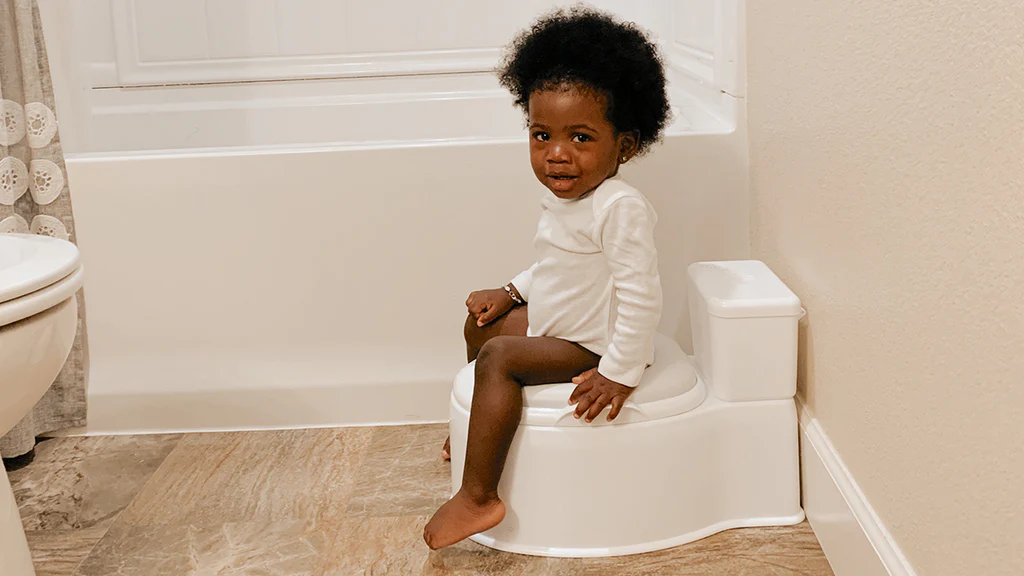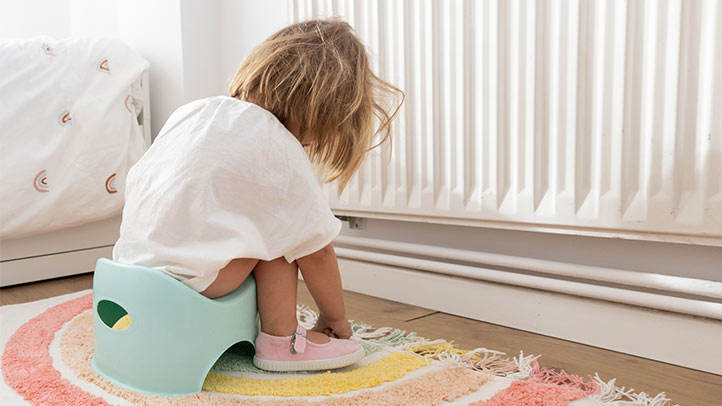When to Start Potty Training: Finding the Right Timing for Your Child
Potty training is a significant milestone for both toddlers and parents. It signifies a step towards independence, a newfound sense of accomplishment, and yes, sometimes a few messes along the way. However, with the excitement can come uncertainty. When is the right time to start potty training your child? There’s no single answer, as every child develops at their own pace. Here, we’ll explore signs of readiness, factors to consider, and tips for a smooth transition.
Signs Your Child Might Be Ready for Potty Training
While there’s no magic age for potty training, some signs indicate your child might be developmentally ready to begin the journey. Here are some key indicators to watch for:
1. Physical Development:
- Bladder and Bowel Control: Look for signs like staying dry for longer stretches during the day (around 2-3 hours) or waking up from naps with dry diapers. Consistent bowel movements on a predictable schedule can also indicate developing control.
- Discomfort with Full Diaper: Pay attention to your child’s behavior when they have a full diaper. Do they show signs of discomfort, such as fussing, pulling at the diaper, or squatting? This can indicate they’re starting to understand the feeling of a full bladder or bowel and might be ready to use the potty.
2. Showing Interest:
- Curiosity about the Toilet: Observe your child’s behavior around the bathroom. Do they show curiosity about the toilet, ask questions about how you use it, or try to mimic your actions? This can be a strong sign of interest and potential readiness.
- Mimicking and Pretend Play: Watch for your child mimicking your bathroom habits, pretending to use the potty with their stuffed animals, or expressing a desire to wear “grown-up underwear” like you or older siblings. These behaviors demonstrate their growing interest and understanding of using the toilet.
3. Expressing Discomfort:
- Verbal Cues: Does your child say they’re wet or dirty, even before you change their diaper? This indicates they’re starting to associate the feeling of a full bladder or bowel with discomfort and might be ready to express a need to use the potty.
- Non-verbal Cues: Pay attention to your child’s non-verbal cues as well. Do they squirm, grimace, or try to hide when they’re wet or dirty? These behaviors can also signify they’re becoming aware of bodily sensations and might be ready to transition to the potty.
4. Following Simple Instructions:
- Basic Commands: Can your child follow simple instructions in other areas like putting away toys, picking up clothes, or responding to basic requests? This ability to understand and follow directions translates well to potty training, where they’ll need to follow simple instructions like sitting on the potty, pulling down their pants, or wiping.
- Understanding the Concept: Does your child seem to understand the basic concept of using the potty, even if they haven’t yet mastered the physical skills? This understanding, combined with other signs, can indicate they might be ready to begin the potty training journey.
Remember: These signs are not always definitive, and some children might exhibit some but not all of them. It’s important to consider your child’s individual development and readiness before starting potty training. Some toddlers might show readiness earlier than others, and that’s perfectly normal.
Factors to Consider When Deciding When to Start
While your child showing signs of readiness is a good starting point, here are some additional factors to consider when deciding when to begin potty training:
1. Your Lifestyle:
- Major Life Changes: Significant life changes like expecting a new baby, moving houses, or starting a new job can introduce stress and disruptions that can hinder successful potty training. Consistency is key, and these changes can make it challenging to maintain a consistent routine and offer dedicated attention. Consider waiting for periods of relative stability to begin potty training.
- Travel Plans: Frequent travel or extended trips away from home can disrupt the established potty training routine. If you have upcoming trips planned, consider waiting until after to avoid setbacks and potential frustration for both you and your child.
2. Your Child’s Temperament:
- Personality and Disposition: Consider your child’s individual personality and temperament. If they are generally easygoing and adaptable, they might adjust to potty training more readily. However, if they are easily frustrated or resistant to change, waiting for them to be emotionally prepared can lead to a smoother and more positive experience.
- Learning Style: Pay attention to how your child learns best. If they learn best through visual cues, using picture books or potty training videos might be helpful. Conversely, if they respond well to hands-on learning, letting them practice dressing and undressing with their clothes on the potty can be beneficial.
3. Your Time Commitment:
- Availability and Patience: Potty training requires consistent attention, patience, and a positive attitude. Be prepared to offer frequent reminders, answer questions, and manage accidents without getting discouraged. If you’re feeling overwhelmed or don’t have the time to dedicate to consistent support, it might be wise to wait until your schedule allows for more focused involvement.
Additional Tips:
- Talk to your child’s pediatrician: They can assess your child’s development and offer personalized advice based on their individual needs and readiness.
- Observe and learn from others: Talk to friends, family members, or online communities for parents navigating potty training. Their experiences and insights can be valuable resources.
- Consider your own comfort level: Your confidence and enthusiasm play a significant role in your child’s experience. If you feel anxious or unsure about starting, it might be beneficial to wait until you feel more prepared and comfortable.
Avoiding Starting Potty Training Too Early
While the urge to start potty training early might be present, there are downsides to starting before your child is truly ready. Here’s why:
-
Frustration for Both Parties: If your child isn’t physically or mentally ready, potty training can become a frustrating experience for both of you. They might not understand the concept or have the necessary bladder and bowel control, leading to frequent accidents. This frustration can lead to negative associations with using the potty and hinder progress.
-
Power Struggles: If your child feels pressured or forced to use the potty before they’re ready, it can lead to power struggles. They might resist sitting on the potty, throw tantrums, or withhold elimination altogether. This can make the process even more challenging and delay overall success.
-
Discouragement: Accidents are inevitable during potty training. However, if accidents happen frequently because your child isn’t ready, it can lead to discouragement and a negative attitude towards using the potty. This can make them feel like they’re failing, impacting their confidence and motivation.
Remember:
It’s always better to wait for your child to show signs of readiness than to start potty training too early. A positive and successful potty training experience is built on a foundation of developmentally appropriate

